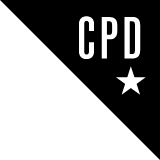A question of trust
In order to deliver transformational success for their organisations, international communications professionals must gain buy-in from their leaders. But how hard is it for comms heads to build trust with the C-suite? Lawrie Holmes reports.
There has never been a greater need for organisations to be more connected. Major global events combined with waves of disruption are forcing companies and other entities to move faster and more effectively, requiring them to be more focused and purposeful, which is where the internal communications function plays a key role.
Daniel Holden, chair of the 2022 Chair of the CIPR Inside committee, defines the role of internal communications specialists as "doing the right thing for our communities… from remote workers through to the CEO, we're there to be the conscious of the organisation, asking the difficult questions and helping align colleagues with the why and how behind the company's purpose," says Holden, a communication consultant at All Things IC with over eight years internal communication experience.
But delivering on that mission requires trust from an organisation's leaders, says Thomas Grøndorf, head of internal, strategy and financial communications at Danish architectural and engineering consultancy COWI.
He describes trust as "the currency of communication… if people don't trust what you're saying or writing, you have a problem - especially when it comes to working with the C-suite".
The starting point for creating trust, he adds, is developing good business acumen, a quality he says many communicators lack. "You really need to understand what drives value in a business, because that's the language of the C suite. You need to understand what they're talking about, to understand what is on the agenda. And that's it's not just financial issues, it's also non-financial elements such as ESG."
WINNING TRUST
Mike Klein, who runs the Iceland-based consultancy Changing the Terms, agrees that good internal communications specialists can build trust by developing a deep-seated understanding of the core agenda of their organisation before interacting with leaders.
"Getting that trust, for me, has involved finding the person at the C-level who's most receptive and developing a track record of working well with that person, especially when it's not the person you usually report to. And then secondly, engaging that person as an advocate and as a salesperson for your service," says Klein.
But he concedes that there will often be limited facetime with leaders, especially the C-suite. The more fluent and impactful you can be in the fewest words is vital. "Unless the leader starts specifying tactics to you, they're not interested in how you're going to do it - they just want to have confidence that you'll address the problem that's on the table," he adds.
Paul Osgood, global head of internal communications at law firm Clifford Chance, says the onus is on internal communications to proactively build a rapport with leaders and maximise the value of exchanges, however brief.
He cites a previous experience as speech writer to the leadership team of banking giant NatWest, where he needed to establish trust as soon as possible. With little face time available, Osgood figured the walk with chief executive Derek Wanless from his office to chauffeur-driven car provided the best opportunity- even though it took less than a minute.
"I planned to solve any problems or issues in those 44 seconds. It was enough time to gain the key input to go and deliver speeches in the right way and with the right message, and therefore develop trust," he says.
With the buy-in established, internal communications professionals can become the eyes and ears of a leader, "their agent in the business," says Osgood.
With a strong rapport established, an internal communications specialist can add value, even if it means being bold at times, says Hamida Bhatia, an independent communications specialist. "Provide effective challenge when you feel something is not going to be of value to your leaders or the business. This comes with knowing what's happening inside and outside your organisation. Build a good experience for your leaders, by giving them evidence through data of how things are playing out," she adds.
And what of the leader's perspective? Kenny Murdoch, who has held CFO and other C-Suite senior roles across a number of global organisations, says "Good internal communications people specialists don't limit themselves to internal comms. "Internal communications heads have often sat at the top table influencing the CEO and me when we've been developing strategy." And when a strong bond is created between C-suite and internal comms, the value of that relationship is never greater than when a crisis impacts an organisation.
"Then you want people who can guide you, to challenge you," he says. "A good internal comms head should be able to manage a difficult situation and all its implications, because of the trust that has been placed in them."
.jpg&w=728&h=90&maxW=&maxH=&zc=1)

